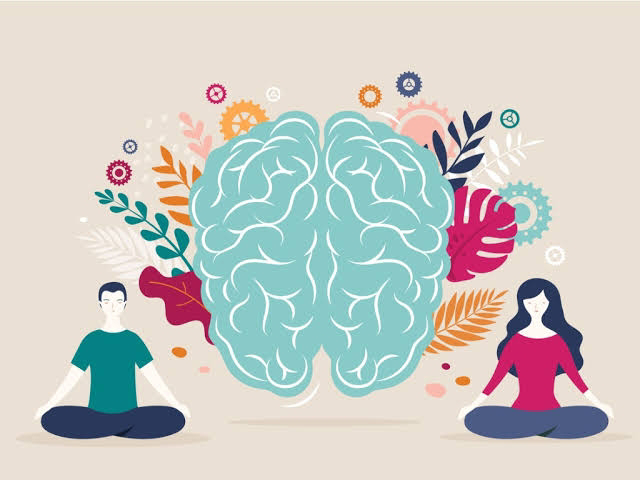Emotional well-being - Ways to incorporate emotional wellness
Emotions are phases of brain activity that are crucial for how we think and feel. They play a significant role in the development of consciousness and influence all mental processes. Different types of emotions are linked to various levels of consciousness. Emotions are like the fuel for our actions and decisions, driven by our brain and biology. They play a big role in why we do things and how we feel about them. Emotions strongly affect our thoughts and actions, especially when the situation is personally or socially important.
Principles of Emotions:
- Feeling emotions is a key part of our mind and consciousness.
- Emotions have a big impact on how our awareness grows and changes over time, guiding our focus and thoughts throughout our lives.
- Our feelings are the main driving force behind our thoughts and actions.
- Basic emotions help us react quickly and effectively to challenges that threaten our survival or wellbeing.
- Using emotions effectively involves balancing emotions with thinking, leading to smart actions based on feelings and learned skills.
- When emotions get linked with negative thoughts and actions through learning, they can become harmful and lead to mental health issues.
- Interest, combined with other emotions, guides what we pay attention to, affecting all other mental processes.
Emotional Wellbeing
In 1947, the World Health Organization described health as "a state of complete physical, mental, and social well-being." Health means feeling confident and positive, and being able to handle life's ups and downs.
Research shows that emotional distress can make us more likely to get sick. For example:
- Stress from exams can make us more likely to catch a virus.
- Stress from having little control at work or from major life events can increase the risk of heart disease.
- Emotional distress can weaken the immune system, making it easier for us to get sick.
Many studies have found that having social and emotional support can help people live longer, stay healthy, and recover from illnesses. It's possible that this support works by reducing stress. More research is needed to test if stress makes people more likely to get sick and to find ways to prevent stress and improve mental and social health.
Habitual Acceptance and Emotional Responses to Stress
People who regularly accept their thoughts and feelings tend to feel less negative when exposed to stressful situations. They also tend to ruminate less, meaning they spend less time dwelling on their problems or reflecting on them in a negative way. Additionally, these individuals are often better at being mindful, which includes noticing what's happening in the present moment, understanding their internal experiences, acting with awareness, and not reacting impulsively to their inner thoughts and feelings.
Accepting our emotions and thoughts is beneficial for our mental health. It can lead to greater happiness, life satisfaction, and lower levels of depression and anxiety. Acceptance can help people avoid making their negative emotions worse or lasting longer. It allows these feelings to go away more quickly.
Effects of mindfulness on emotional health
Mindfulness means being fully aware and focused on the present moment without judgment. Practicing mindfulness after experiencing stress can help reduce its impact and aid in recovery. Practicing mindfulness, which is the act of being fully present and aware of your thoughts and feelings, has many positive effects on both the mind and body. When people are more mindful without even realizing it, they tend to feel better about themselves in certain situations. On the other hand, people who are generally less mindful might experience higher self-esteem, lower levels of feeling bad, less stress, and even lower physical arousal. So, learning mindfulness through meditation and similar practices can help people feel less stressed overall. So, Mindfulness can help people cope better with moderate stress, especially if they're not used to focusing on the present moment without judgment.
Benefits of Optimism And Hope For Positive Mental Health
Optimism is a mental attitude that heavily influences physical and mental health, as well as coping with everyday social and working life. Hope is a cognitive and motivational attribute needed to initiate and support action towards goal achievement. Being optimistic is linked to doing healthy things like not smoking, drinking alcohol in moderation, walking quickly, and regularly being active. Hope is really important for how we feel and how we deal with things in life. When we have hope, we tend to feel happier and deal with our emotions better. It also helps us cope with tough situations, feel more satisfied with life, and believe that life has meaning. Hope can give us a sense of purpose, improve our quality of life, and make us feel more supported by others.
To develop a hopeful and optimistic mindset, we can:
- Focus on your strengths.
- Change negative thoughts into positive ones.
- Think hopeful thoughts regularly.
- Boost your self-esteem and self-awareness.
- Spend time with hopeful and optimistic people.
- Practice gratitude, like writing in a journal or thanking others.
- Increase positive feelings.
- Build resilience and find a sense of purpose.
- Foster happiness.
Simply put, optimism and hope are crucial for our mental well-being and how we adjust to life. They help us feel better, have a good quality of life, and cope with challenges, especially for those dealing with mental health issues.
Science of well-being
Having lots of money, being powerful, or being famous doesn't make us happier in the long run, even though many think it does. However, working on becoming a better person and improving our character can make us more self-aware and happier. To understand ourselves better, Cognitive Behavioral Therapy (CBT) can be improved by also thinking about big questions like finding acceptance and meaning in dealing with life's ups and downs. Adding a spiritual aspect to therapy is better than just using CBT alone because it can make us feel more hopeful and satisfied with life.
Stages to Achieve Well-Being:
- Identify what makes you happy.
- Recognize common thinking errors.
- Calm our mind to feel good.
- Awaken our physical senses.
- Awaken our spiritual senses.
- Go beyond mindfulness to nurture our soul.
- Monitor and improve our thoughts.
- Enhance our human relationships.
- Assess our growth and harmony.
- Reflect on our existence









Comments
Post a Comment